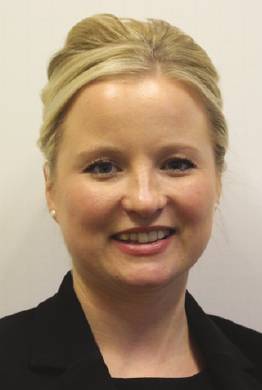HMCTS flexible operating hours pilot
Late court sittings? The jury is still out
Louise Turner asks whether the government’s flexible operating hours pilot, which is billed as a precursor to introducing late court sittings, is a good idea.

About the author
Louise Turner FCILEx is CILEx’s membership manager.
As I write this article, 5,210 individuals have signed the petition created by barrister Morwenna Macro calling on the Ministry of Justice and HM Courts and Tribunals Service (HMCTS) to put a halt to the pilot scheme and 'any plans to introduce late court sittings', otherwise referred to by HMCTS as ‘flexible operating hours’.
While the implementation of the pilot scheme has, for now, been delayed because of the general election, it is still very much in the minds of all those who frequent the courts as part of their everyday lives: from advocates, users and staff to outside agencies.
The pilot scheme plans to operate in six courts over a six-month period.
- Crown courts: Newcastle Crown Court and Blackfriars Crown Court;
- Magistrates' courts: Sheffield and Highbury Corner; and
- Civil/Civil and Family courts: Brentford County Court and Manchester Civil Justice Centre.
It is reported that the extended operating hours pilots will test a number of different operating hours models, with some courts starting hearings at 8 am and finishing at 8.30 pm.
The questions I ask myself, as a former criminal defence advocate, are these: If my court sits from 8 am to 8.30 pm:
- How will I concentrate at the high level required to do work of a court advocate during such lengthy hours?
- How will my clients concentrate during unsocial hours, particularly those with an alcohol or drug dependency, or those with mental health issues?
- Will the courts increase security levels when open during unsocial hours, which may attract anti-social behaviour in the lobby, and inside and outside the court building?
- Will clients and witnesses attend court during unsocial hours?
- Will we see an increase in clients failing to appear, which will create additional work for the Police Service and HMCTS?
- On a personal level, who will collect my toddler from nursery at 5.30 pm if I am working late and other carers are not available?
- Is it fair on my child if their mother is not available to collect them, or be home in time to feed, bath and put them to bed?
- Is it fair on my husband to take on the caring roles usually shared by both parents?
- Will my firm be able to afford, due to legal aid cuts over recent years, to pay me overtime to attend court during unsocial hours?
- If I am at court during unsocial hours, who will represent my clients at the police station, or will my firm have to expand their workforce?
These questions are just a starter for ten, but really how will everyone cope if this pilot scheme is given the rubber stamp?

I cast my mind back to my days at court and wonder: how would I fit it all in? When attending court to represent those on the court duty list, I would arrive no later than 8.45 am. I would see clients back to back, liaise with the prosecutor, the staff in the cells, the ushers, the Probation Service, mental health professionals, and clients’ family
members, and then there were the court hearings themselves. There were many occasions when, due to sheer workload, I would not leave court till 7 pm and left feeling drained and exhausted. Court advocates do the work they do because of their love of the law and their dedication to their clients and to the administration of justice, but should they be required to work extended and further unsocial hours in order to carry on in the jobs they feel so passionately about?
If you are a member working in any of the HMCTS flexible operating hours pilot areas and will be directly affected by the scheme, CILEx would like to hear from you.
- Please e-mail : cilexpolicy@cilex.org.uk
CILEx itself has significant reservations about the pilot, and what it could mean for CILEx members and their clients. We are working with the project team to highlight the concerns we have about the impact the scheme will have on our membership, especially considering that many chose the CILEx route to qualify because of the flexibility it offered.
There are outstanding issues that will be addressed in the coming months, in particular, the crucial questions of what precisely will be measured during the pilot, and how will ‘success’ be determined?
The suggested flexible operating hours are part of a wider package of reforms which are being considered currently by HMCTS. CILEx has been seeking the views of our members throughout this process, and offering them the opportunity to become involved in a more direct way with HMCTS. This has been through a number of our newly launched Specialist Reference Groups.
If you would like the opportunity to contribute more to helping CILEx develop its policy or knowledge base, and helping us gain a greater understanding of the needs of you - our members - then please visit our website for further details.